Related Research Articles

David Glasgow Farragut was a flag officer of the United States Navy during the American Civil War. He was the first rear admiral, vice admiral, and admiral in the United States Navy. He is remembered for his order at the Battle of Mobile Bay, usually paraphrased as "Damn the torpedoes, full speed ahead" in U.S. Navy tradition.

Commodore William Bainbridge was a United States Navy officer. During his long career in the young American navy he served under six presidents beginning with John Adams and is notable for his many victories at sea. He commanded several famous naval ships, including USS Constitution, and saw service in the Barbary Wars and the War of 1812. Bainbridge was also in command of USS Philadelphia when she grounded off the shores of Tripoli, Libya in North Africa, resulting in his capture and imprisonment for many months. In the latter part of his career he became the U.S. Naval Commissioner.

George Dewey was Admiral of the Navy, the only person in United States history to have attained that rank. He is best known for his victory at the Battle of Manila Bay during the Spanish–American War, with the loss of only a single crewman on the American side.
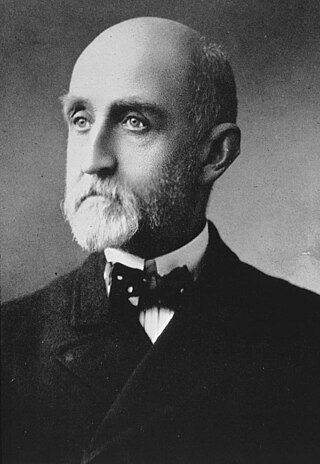
Alfred Thayer Mahan was a United States naval officer and historian, whom John Keegan called "the most important American strategist of the nineteenth century." His book The Influence of Sea Power Upon History, 1660–1783 (1890) won immediate recognition, especially in Europe, and with its successor, The Influence of Sea Power Upon the French Revolution and Empire, 1793–1812 (1892), made him world-famous.
William Russell may refer to:

David Porter was an officer in the United States Navy in the rank of captain and the honorary title of commodore. Porter commanded a number of U.S. naval ships. He saw service in the First Barbary War, the War of 1812 and in the West Indies. On July 2, 1812, Porter hoisted the banner "Free trade and sailors' rights" as captain of USS Essex. The phrase resonated with many Americans. Porter was later court martialed; he resigned and then joined and became commander-in-chief of the Mexican Navy. Porter County, Indiana was named after him.

James Shedden Palmer was an officer in the United States Navy during the Civil War. He was later promoted to rear admiral.
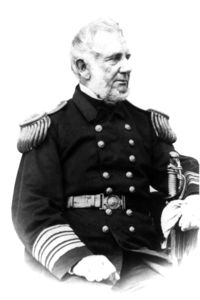
Charles Heyer Bell was a rear admiral in the United States Navy who served during the War of 1812, the Second Barbary War, and the American Civil War.
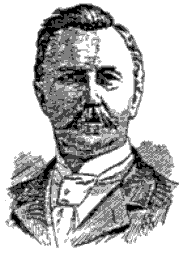
John Randolph Spears (1850–1936) was an American author and journalist.

Thomas Macdonough, Jr. was a United States Navy officer noted for his roles in the First Barbary War and the War of 1812. He was the son of a revolutionary officer, Thomas Macdonough, Sr. who lived near Middletown, Delaware. He was the sixth child from a family of ten siblings and was raised in the countryside. He entered naval life at an early age, receiving a midshipman's commission at the age of sixteen.
Walter Lynwood Fleming (1874–1932) was an American historian of the South and Reconstruction. He was a leader of the Dunning School of scholars in the early 20th century, who addressed Reconstruction era history using historiographical technique. He was a professor at Vanderbilt University from 1917 through his career, also serving as Dean of the School of Arts and Sciences, and Director of the Graduate School. A prolific writer, he published ten books and 166 articles and reviews. The son of a plantation owner who had slaves, Fleming was sympathetic to White supremacist arguments and Democratic Party positions of his era while critical of Republicans and Reconstruction.
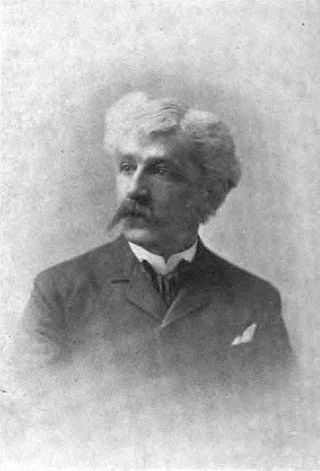
James Otis Kaler was an American journalist and author of children’s literature. He wrote under the name James Otis.
USS Althea was a screw steamer acquired by the Union Navy during the American Civil War. The Union Navy used it as a tugboat, a torpedo boat, and a ship's tender in support of the Union Navy blockade of Confederate waterways.

John Sanford Barnes was a United States Navy officer and businessman and naval historian.
John Mahlon Barnes (1866–1934) was an American trade union functionary and socialist political activist. Barnes is best remembered as the Executive Secretary of the Socialist Party of America from 1905 to 1911, during which time he originated the idea of the party's 1908 "Red Special" campaign train on behalf of its Presidential nominee, Eugene V. Debs.

Historical accounts for early U.S. naval history now occur across the spectrum of two and more centuries. This Bibliography lends itself primarily to reliable sources covering early U.S. naval history beginning around the American Revolution period on through the 18th and 19th centuries and includes sources which cover notable naval commanders, Presidents, important ships, major naval engagements and corresponding wars. The bibliography also includes sources that are not committed to the subject of U.S. naval history per se but whose content covers this subject extensively.

This Theodore Roosevelt bibliography lists the works written by Theodore Roosevelt. Roosevelt was a diligent and skilled writer. When he lost his fortune in the Dakota Territory in 1886 and needed to make a living to support his family, he did so for the rest of his life by writing. Roosevelt wrote on a wide range of topics and genres, including history, autobiography, biography, commentary and editorials, memoirs, nature, and guide books. In addition, by one estimate Roosevelt wrote more than 150,000 letters. In his style, Roosevelt could be strong, introspective, exuberant, or angry—the subject dictated the style.

Julian Ralph was an author and journalist, most noted for his work on The Sun, a newspaper of New York City.
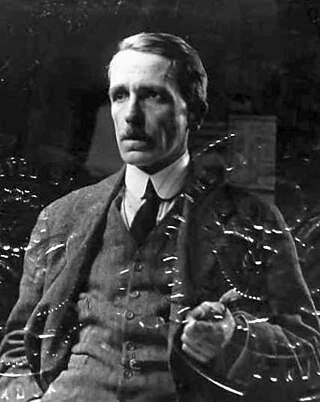
Charles Mills Sheldon was a war correspondent, artist, and book illustrator, born in the United States, who moved to Europe in 1890.
References
 This article incorporates text from a publication now in the public domain : Gilman, D. C.; Peck, H. T.; Colby, F. M., eds. (1905). "Barnes, James (1866–)". New International Encyclopedia (1st ed.). New York: Dodd, Mead.
This article incorporates text from a publication now in the public domain : Gilman, D. C.; Peck, H. T.; Colby, F. M., eds. (1905). "Barnes, James (1866–)". New International Encyclopedia (1st ed.). New York: Dodd, Mead.
- ↑ "Col. James Barnes, Author, Dies at 69; War Correspondent, Explorer, Editor and Lecturer Had Served in Air Force, Wrote Two Dozen Books; A Descendant of Famous Naval Families -- Led Expedition Through Africa" . The New York Times . May 1, 1936.
- 1 2 3 4 "Colonel James Barnes". Hartford Courant . Princeton, New Jersey (published May 1, 1936). AP. April 30, 1936. p. 4. Retrieved April 17, 2024– via Newspapers.com.
- ↑ "Colonel Barnes Dead". The Press of Atlantic City . Princeton, New Jersey (published May 1, 1936). AP. April 30, 1936. p. 4. Retrieved April 17, 2024– via Newspapers.com.